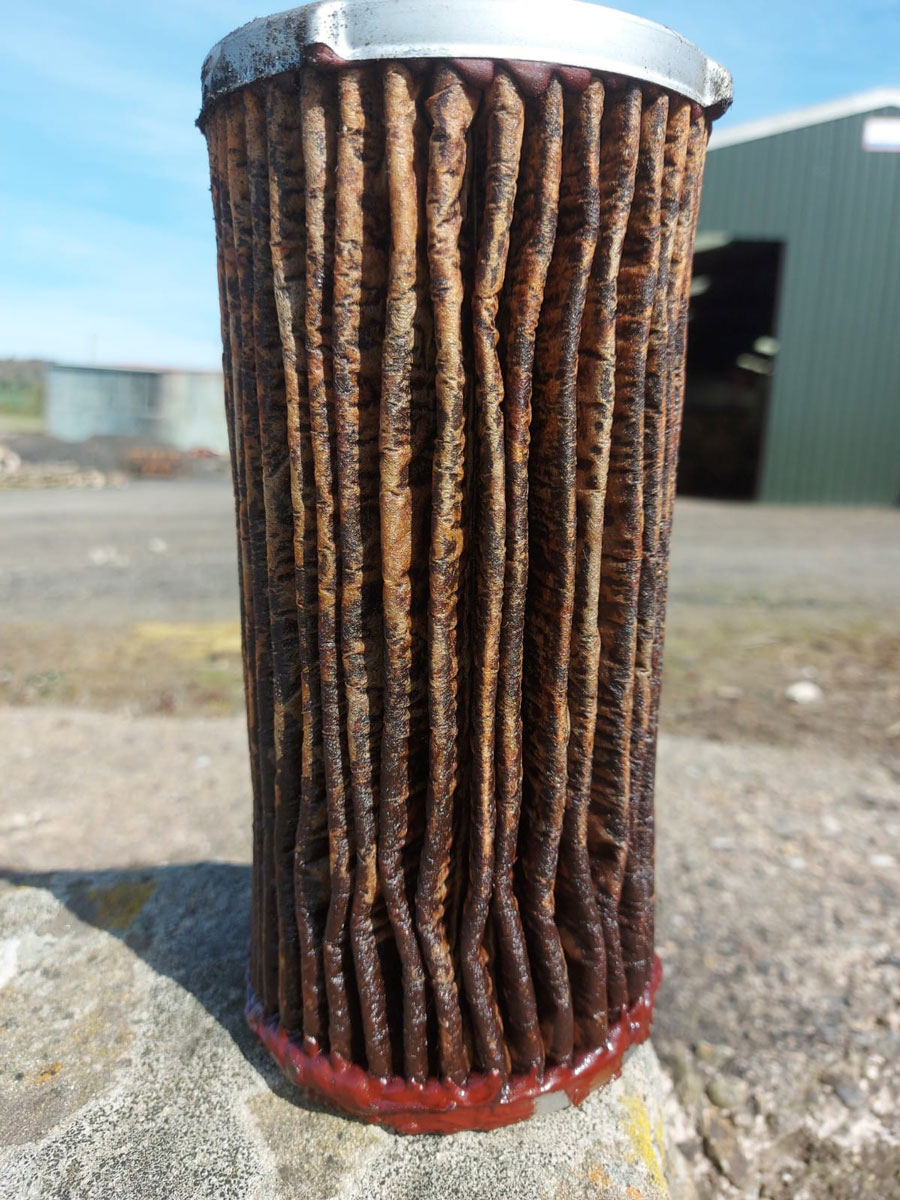6 tips to minimise problems with blocked fuel filters

© NFU Scotland
Farmers across the UK are continuing to report problems with blocked fuel filters in tractors and other farm vehicles.
An increase in fatty acid methyl ester (FAME) blend component for red diesel fuel, which is made from various combinations of fresh and recycled vegetable oils and some animal fats, is suspected to be the root cause of the problem.
In 2004, the British Standard for Road Diesel (BS EN590) changed to permit FAME content up to 5%, before increasing in 2009 to a maximum of 7% in both red diesel and diesel.
See also: Red diesel: The problems uncovered
Under the UK’s Renewable Transport Fuel Obligation, the government has set out targets to increase FAME content in red diesel fuels to 12.4% by 2032.
The changes are part of efforts to reduce greenhouse gas emissions and encourage the use of safer biofuels.
But UK farming unions, including the National Farmers Union (NFU), NFU Scotland (NFUS) and NFU Cymru, have raised complaints about blocked filters with the British Standards Institution , and it continues to investigate the issue, which first surfaced in October 2019.
Reported issues include poor machine performance, blocked filters on storage tanks and machines, replacement of filters before schedule – sometimes after only a few hours of use – resulting in expensive machinery breakdowns and delays to field work.
Meanwhile, amid the ongoing problems with blocked fuel filters, NFUS transport advisor Jamie Smart has used his latest blog to offer farmers steps they can take to minimise the likelihood of problems.
1. Order the correct fuel for your machinery
There are two main grades of diesel – BS2869 and BS590. BS2869 was the class of fuel traditionally used in tractors.
However, engine manufacturers are increasingly specifying BS590, so it is worth checking the instruction manual or asking your dealer which grade of fuel you should be using.
Specifically, ask your suppler for the correct fuel rather than just ordering gas oil or red diesel.
2. Order the correct fuel for the time of year
Legally, winter-grade fuel must be supplied from 15 November and summer grade from 15 March, but the actual change dates vary slightly to allow for any delays in the supply chain.
If you are ordering fuel around these times it is worth asking your supplier what fuel will be delivered – it may be worth delaying the delivery to ensure the fuel will be of the correct grade.
3. Try to site your fuel tank away from the worst of the weather
Especially during extremes in temperature.
4. Try not to keep fuel for too long, as it will deteriorate over time
A maximum of six months is recommended.
5. Have your storage tank checked regularly and cleaned where necessary
Modern bunded tanks can be difficult to clean as they are designed more to prevent spillage and pollution.
If you are getting a new storage tank, think about how you are going to clean it out and remove any water that may collect in it.
6. Fit a suitable filter on the outlet of your storage tank
These filters can remove a large proportion of contaminants, including water droplets.
* NFUS members are entitled to a 20-minute free advice call on all issues relating to vehicles via the Transport Helpline. For info, call Jamie Smart, on 07733 136 424 or email: agrivehelp@nfus.org.uk

